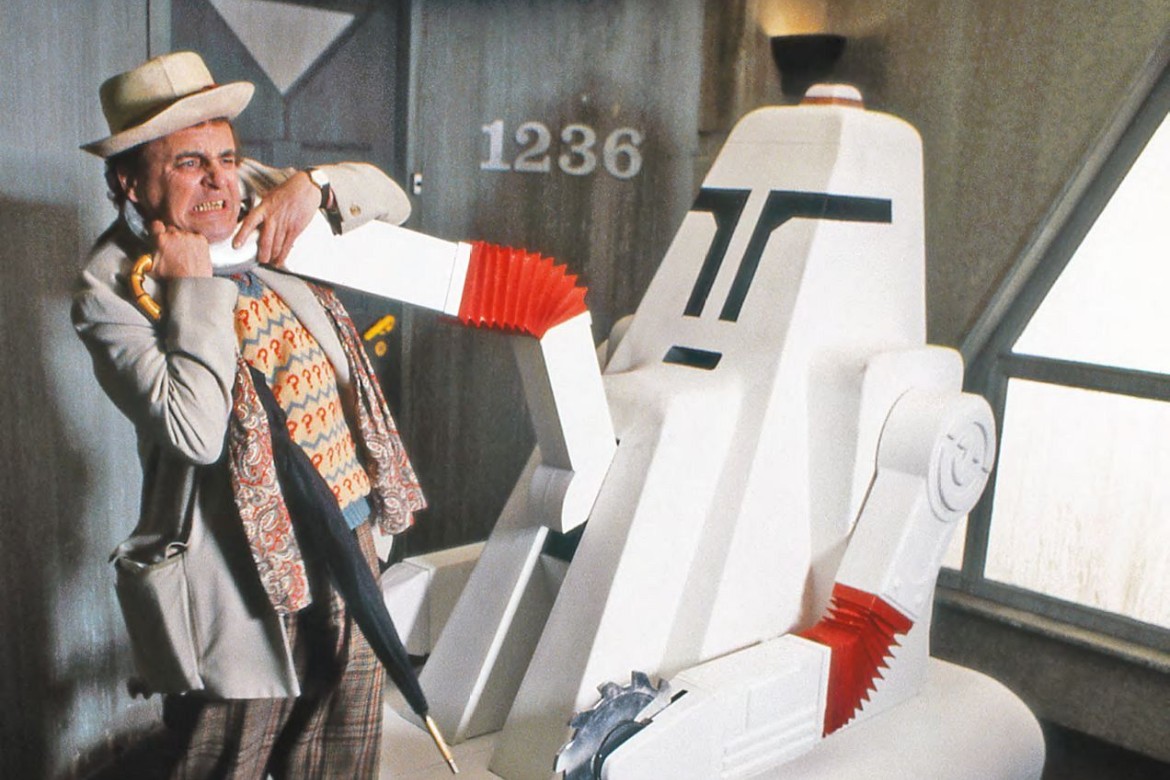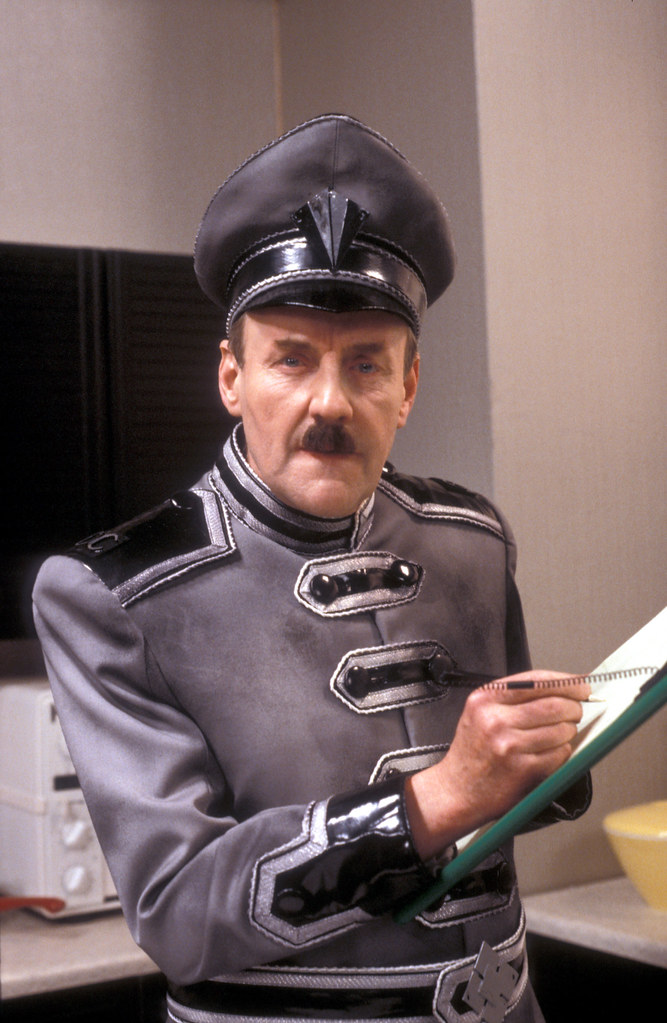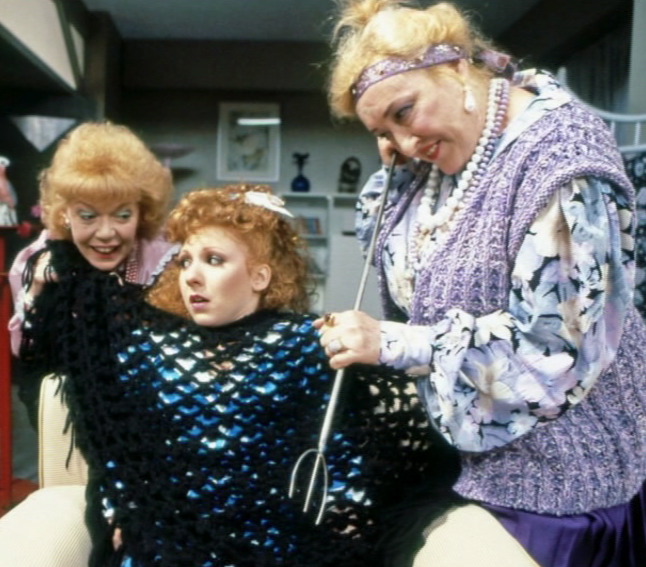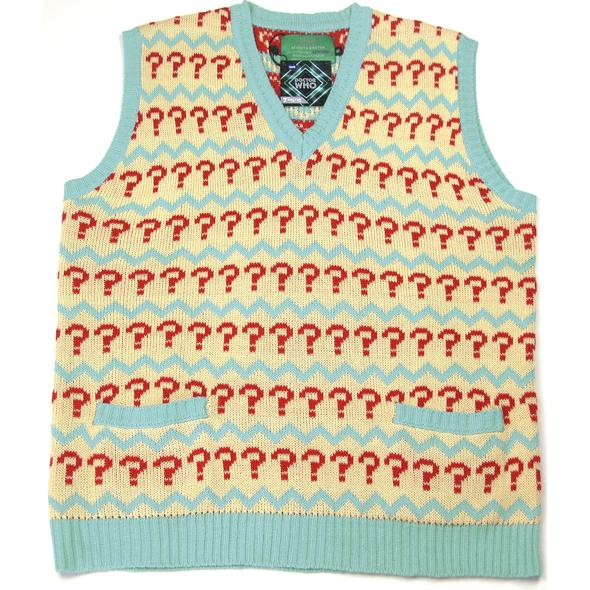What is the true story behind ‘Paradise Towers’ – the Seventh Doctor adventure set within a run-down apartment block?

‘Paradise Towers’ is an unusual adventure from Doctor Who Season 24. Penned by Stephen Wyatt, it was one of the first to be overseen by incoming script editor Andrew Cartmel, and featured the Seventh Doctor and Mel’s first trip in the TARDIS. It tells the story of a decaying tower block in which society has started to crumble. Rule-obsessed law enforcers (known as Caretakers) oppress the inhabitants, whilst carnivorous cleaning machines stalk the dimly-lit passages. At the same time, many of Paradise Towers’ inhabitants have split into factions known as Kangs, who terrorise the other residents (or Rezzies) with improvised crossbows fashioned out of TV aerials.
It’s a bleak premise, but one that is laden with comedy. Despite the disturbing subject matter, ‘Paradise Towers’ is arguably one of the more light-hearted Doctor Who adventures. For a start, it guest stars comedy actor Richard Briers as the Chief Caretaker, who sports a Hitler moustache whilst delivering many of his lines with a pantomimic grimace. Then there’s Pex: a muscle-bound, gun-wielding strong-man who has vowed to defend Paradise Towers at all costs – whilst being terrified of virtually everything.

But despite these tonal shifts, ‘Paradise Towers’ was actually inspired by some fairly grim source material. Indeed, it’s no secret that Stephen Wyatt and script editor Andrew Cartmel took many of their ideas from a dystopian thriller called High-Rise – a 1975 book by the English novelist J.G. Ballard.
And anyone who has ever read High-Rise will instantly see the similarities with ‘Paradise Towers.’ The book tells the story of a tower block that has been built as a social experiment, with its great architect residing in a penthouse on the top floor where he can look down on the neglected lower classes. In High-Rise, society has gone to the dogs; the inhabitants are making weapons out of everyday objects, and live on the brink of starvation – so much so that, when things get really bad, they resort to cannibalism in order to survive.
And this is certainly the case in ‘Paradise Towers,’ too. Cannibalism is rife in the serial; the Doctor’s companion Mel falls foul of this when she’s accosted by two sweet old ladies called Tabby and Tilda, who invite her into their apartment for tea and crumpets. But of course, Mel doesn’t realise that she is on the menu. Until it’s too late.

This moment is a rare piece of black comedy in Doctor Who, and proved to be quite controversial at the time. The scene in episode three in which Tabby and Tilda wrap Mel in a net and threaten her with a knife prompted a number of complaints to the TV show Open Air. Apparently, the episode was transmitted shortly after the Hungerford Massacre of 1987, in which a disturbed young man went on a killing spree with a knife. The tabloid press blamed the man’s behaviour on his diet of violent films and TV, and some viewers responded negatively to the threatening imagery in ‘Paradise Towers’ as they felt it was insensitive.
And whilst this is a fairly light-hearted serial on the whole, the BBC One Controller Michael Grade did insist on the knife scenes being removed from future broadcasts.

That being said, the similarities with High-Rise are still in evidence here. In Ballard’s book, the female residents clump together for their own safety (as with Tabby and Tilda.) And before they resort to cannibalism, they capture animals first. This is reflected in ‘Paradise Towers’ when the character of Tabby is seen gnawing on an animal carcass.
But despite these similarities, High-Rise may not have been the sole inspiration for this story. In 1977, ITV ran a fantasy serial called King of the Castle in which a young man finds himself trapped in a nightmarish version of his own tower block, after an uncontrollable lift transports him to another dimension. He works his way towards the top floor, and on his way encounters a wild gang of youths and rule-obsessed officials. (Incidentally, King of the Castle was written by Doctor Who writers Bob Baker and Dave Martin, who penned ‘The Claws of Axos.’)
Of course, the similarities with King of the Castle could be a coincidence. But what these parallels demonstrate – if nothing else – is the enduring nature of the central themes: society, oppression, what it means to be human, and so on. Moreover, run-down tower blocks and creepy hotels have been a backdrop for many a science fiction story over the years, and it makes sense that Doctor Who would eventually get round to employing these tropes.
But is ‘Paradise Towers’ an enjoyable enough story in its own right? Opinion was somewhat divided in 1987. The BBC’s Head of Drama Jonathan Powell (after viewing a finished cut of episode one) described the serial as being “absolutely first-class.” But at the same time, a contemporary audience report hinted at a dislike for the Doctor’s companion, with a number of people saying that they wanted her to be eaten by cannibals.
However, Andrew Cartmel makes an interesting point about this time period in the upcoming Doctor Who Season 24 Blu-ray set. Despite having courted some criticism of the Seventh Doctor era over the years, he points out: “In some ways it is having the last laugh, because most of the other shows that came out at that time are the dust of history.”
So whether you love or hate ‘Paradise Towers,’ it is clear that the story is still generating discussion, and indeed will soon be getting a special re-release in a limited edition box set. And as Cartmel suggests, there aren’t many other shows from 1987 that are still being showcased in this way.
How do you feel about ‘Paradise Towers’? Have you ever read High-Rise by J.G. Ballard? And how similar do you think the two stories are? Let me know in the comments below.

Seventh Doctor jumper – order now from the Lovarzi shop!
Shop on Amazon
Latest posts…
- Resurrection of the Daleks: blood bath or bona fide classic?
- Doctor Who classics: Looking back at The Waters of Mars
- 3 Doctor Who events to look forward to in 2026
- 4 theories about Billie Piper’s Doctor Who appearance
- The mysterious missing scene from Revenge of the Cybermen

Leave a Reply